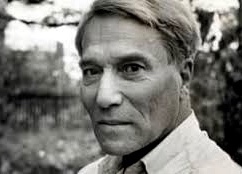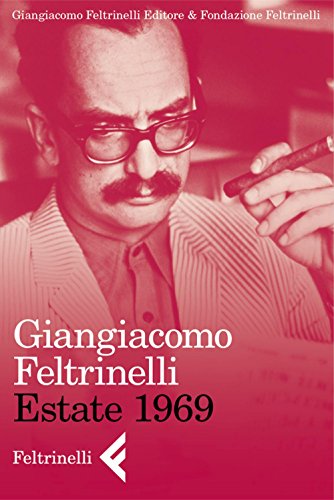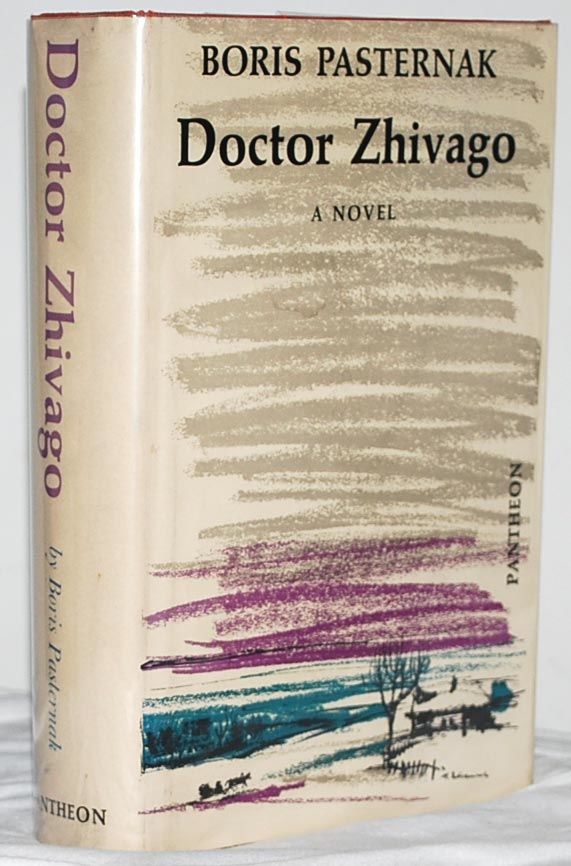“They would call us girls, but we were not. We came to the Agency by way of Radcliffe, Vassar, Smith. We were the first daughters of our families to earn degrees. Some of us spoke Mandarin. Some could fly planes. Some of us could handle a Colt 1873 better than John Wayne. But all we were asked when interviewed was ‘Can you type?’….But who were we to complain? It was certainly more exciting than most government gigs. The Soviet Russia Division, or SR became our home away from home.” – from the Prologue.
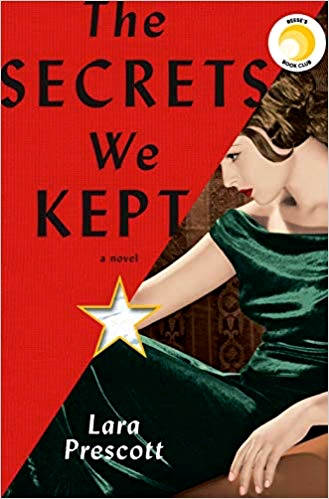 Following the Prologue, which introduces the women working for the U. S. government’s Soviet Russia division of “the Agency” immediately after World War II, debut author Lara Prescott gets her novel off to a dramatic start by contrasting their seemingly quiet governmental lives with the lives of high level Russian citizens half a world away. These citizens, by contrast, try to avoid government officials, living their lives, if possible, outside the purview of the Soviet police. As Chapter 1 opens, however, the “men in black” have arrived in Moscow at a private home occupied by a mother with two children in 1950. Without explanation, they have begun ransacking her private letters from “Boris,” her notes, food lists, newspaper clippings, magazines, and books. Before she can respond to this home invasion, “one of the men took hold of [her] arm – more like a lover than someone sent to arrest [her], and with his breath hot against [her] neck, said it was time to go.” She is off to Lubyanka Prison though she is nauseous, pregnant, and overwhelmed by her arrest.
Following the Prologue, which introduces the women working for the U. S. government’s Soviet Russia division of “the Agency” immediately after World War II, debut author Lara Prescott gets her novel off to a dramatic start by contrasting their seemingly quiet governmental lives with the lives of high level Russian citizens half a world away. These citizens, by contrast, try to avoid government officials, living their lives, if possible, outside the purview of the Soviet police. As Chapter 1 opens, however, the “men in black” have arrived in Moscow at a private home occupied by a mother with two children in 1950. Without explanation, they have begun ransacking her private letters from “Boris,” her notes, food lists, newspaper clippings, magazines, and books. Before she can respond to this home invasion, “one of the men took hold of [her] arm – more like a lover than someone sent to arrest [her], and with his breath hot against [her] neck, said it was time to go.” She is off to Lubyanka Prison though she is nauseous, pregnant, and overwhelmed by her arrest.
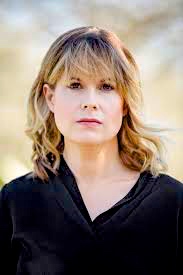 The woman who has been arrested is Olga Vsevolodovna Ivinskaya, the lover of married author Boris Pasternak and the inspiration for Lara in the unpublished, unfinished, and highly controversial novel, Dr. Zhivago, by Pasternak, one of Russia’s most highly recognized and most-read authors. Though the book has not been released in Russia, it is suspected of containing anti-Soviet passages which might embarrass the current government. During her interrogation by Anatoli Sergeyevich Semionov, Olga learns that she has been arrested for “expressing anti-Soviet opinions of a terroristic nature,” and that she will be expected to write a confession – about Pasternak – admitting that he has “rejected socialist realism in favor of writing characters who lived and loved by their hearts’ intent, independent of the State’s influence.” Other witnesses attest that Olga plans to escape abroad with Pasternak, that she has listened to anti-Soviet radio broadcasts at home, and has slandered Soviet writers who have patriotic views. She is immediately sentenced to a reeducation camp in Potma, six hundred kilometers from Moscow, for five years. Shortly after her arrival there, she loses the baby she has been expecting with Pasternak.
The woman who has been arrested is Olga Vsevolodovna Ivinskaya, the lover of married author Boris Pasternak and the inspiration for Lara in the unpublished, unfinished, and highly controversial novel, Dr. Zhivago, by Pasternak, one of Russia’s most highly recognized and most-read authors. Though the book has not been released in Russia, it is suspected of containing anti-Soviet passages which might embarrass the current government. During her interrogation by Anatoli Sergeyevich Semionov, Olga learns that she has been arrested for “expressing anti-Soviet opinions of a terroristic nature,” and that she will be expected to write a confession – about Pasternak – admitting that he has “rejected socialist realism in favor of writing characters who lived and loved by their hearts’ intent, independent of the State’s influence.” Other witnesses attest that Olga plans to escape abroad with Pasternak, that she has listened to anti-Soviet radio broadcasts at home, and has slandered Soviet writers who have patriotic views. She is immediately sentenced to a reeducation camp in Potma, six hundred kilometers from Moscow, for five years. Shortly after her arrival there, she loses the baby she has been expecting with Pasternak.
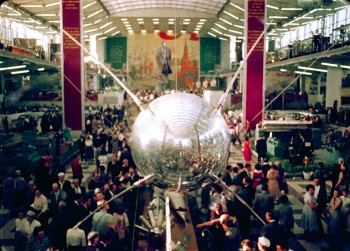
Soviet Pavilion at the Brussels World Expo 1958, where secret copies of Dr. Zhivago appear and are sent to Russia. (That is Sputnik in the center.)
Having established through a few examples how vicious and cold prison life is in Lubyanka, author Prescott leaves this plot line to concentrate on introducing the larger cast of characters working for the SR division of the Central Intelligence Agency in the US, six years later. Two characters in particular, Irina Drozdova, an American whose mother is Russian, and Sally Forrester, a red-headed femme fatale, are among the “typing pool” who have special after-hours work. Organized by Frank Wisner and Walter Anderson, who lead the CIA’s clandestine operations, and aided by Teddy Helms and Henry Rennet, the men plan the operations and employ the women for special duty when necessary. Irina’s specialty is that of a carrier, someone who can carry important papers, data, and information and “drop” them for other agents’ pickup without being observed. Sally is an expert at evaluating the appearance of people and drawing conclusions about who and what they are, based on subtleties of behavior and dress.
Meticulously constructed and highly dramatic, The Secrets We Kept moves forward with these dual story lines – one set in the West and featuring members of the Soviet/Russia branch of the US intelligence agency, and the other set in the East, primarily Moscow, focusing on the Soviet government, author Boris Pasternak, and the people surrounding him. The title alone suggests that both groups keep important, even life-or-death secrets. While maintaining the almost contemporaneous time frames of the two separate groups, East and West, the author alternates the locations of the action, a technique which puts two big story lines into a grand perspective while allowing readers to recognize how these story lines overlap in real time.
Meanwhile, daily life goes on in Moscow for Boris Pasternak, his family and, eventually Olga, his muse, after her release. An early turning point occurs just short of halfway through the novel when a dramatic, life-changing event takes place in the Russian countryside, as two members of Radio Moscow, one Russian and one Italian, meet with Boris Pasternak at his dacha. Sergio D’Angelo is also representing Italian publisher Giangiacomo Feltrinelli, who would like to publish Doctor Zhivago for an Italian audience, “then perhaps beyond.” Though years have passed since he began the book, Pasternak still “has not heard a word from the Russian publishing houses,” though in the past he “has never had to wait a day to hear word about [his] work.” He knows that whatever the Russians have said about its imminent publication, the book will not be published there because “it does not conform to their cultural guidelines.”
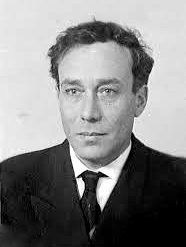
In 1988, thirty years after the first publication of Dr. Zhivago, Pasternak’s son Yevgeny, was able to accept his father’s Nobel Prize for Literature.
World literary history is changed when Sergio D’Angelo responds to Pasternak with one simple question: “What if you were to give me the manuscript?” From this point on, the book attempts to resolve all the issues one expects with a climax, but this story is extremely complex and affects every character. “Tying up loose ends” involves the use of secret disguises at the Brussels World Expo, 1958, new arrests, imprisonments, plans for suicide, questions regarding the Nobel Prize, the possibility of a double agent within the CIA, and the appearance of the US as politically innocent of meddling in Russian affairs. Author Lara Prescott manages to pull it all together with panache, leaving no big questions unanswered. Clearly written, the novel’s alternating locations and time frames are easy to follow, and the characters are clearly distinguished from each other. The excitement of the story line, especially for those who may remember the atmosphere in the US when Dr. Zhivago was finally published here in 1958-59, is palpable. A debut novel which will have almost universal appeal for lovers of literary fiction, history, fictionalized biographies, and political thrillers.
Photos.
The author’s photo appears on https://bookpage.com
While the Soviets were celebrating Sputnik at the World’s Fair in Brussels, secret copies of Dr. Zhivago were being smuggled from the fair to Russia. https://www.alamy.com/
Boris Pasternak’s photo is from https://www.theguardian.com/
Giangiacomo Feltrinelli, an Italian publisher, is the first person to have acquired a copy of Dr. Zhivago and get it into print in his own country. https://www.amazon.it/
In 1988, thirty years after his father won the Nobel Prize for Literature, Yevgeny Pasternak (1923 – 2012) received it in his memory. https://www.wikitree.com/wiki/Pasternak-151
The first edition of Dr. Zhivago had this cover: https://www.biblio.com/
